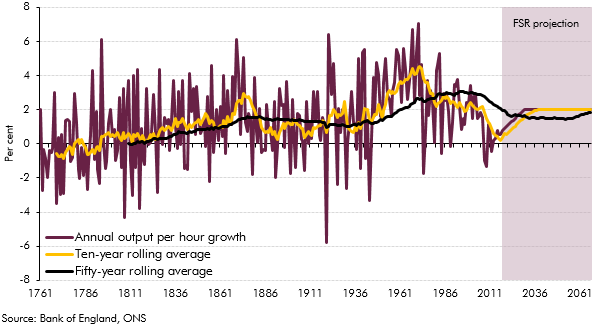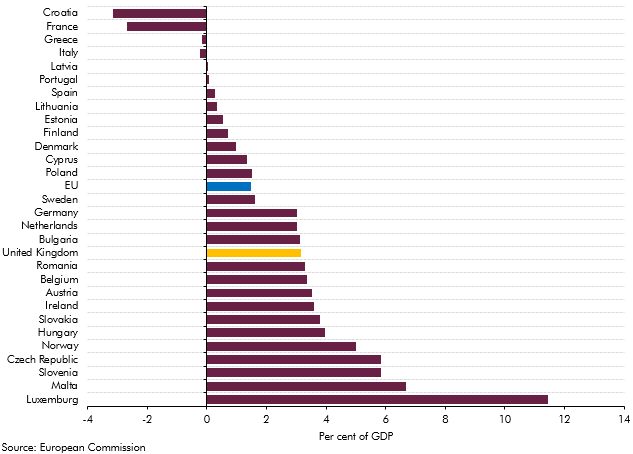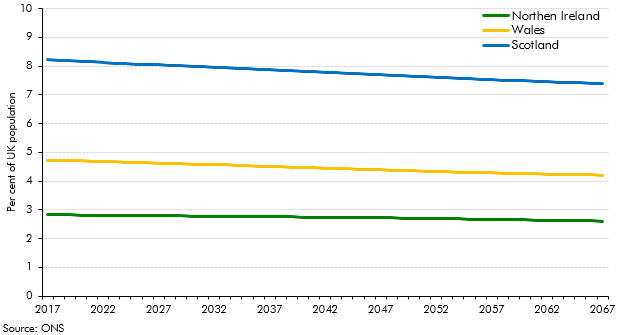Our 2018 Fiscal sustainability report sets out long-term projections for spending, revenue and financial transactions, and assesses whether they imply a sustainable path for public sector debt.
Click here to explore the long-term projections in our interactive tool
The structure the report is as follows:
- Chapter 1: sets out the framework we use in this report to analyse fiscal sustainability;
- Chapter 2: analyses the fiscal consequences of past government activity through alternative measures of the public sector balance sheet;
- Chapter 3: analyses the fiscal consequences of future government activity through long-term projections of revenue and expenditure; and
- Chapter 4: considers summary indicators of fiscal sustainability.
Over the years, we have presented further material in FSR annexes and via supplementary tables. In this FSR, as well as the usual supplementary material below, the report includes two annexes.
- Annex A: looks at how demographic trends have been incorporated in our central population projection and considers how alternative assumptions might affect the size and structure of the UK population; and
- Annex B: considers the implications for fiscal sustainability of factors that could affect the long-term costs of long-term care.




